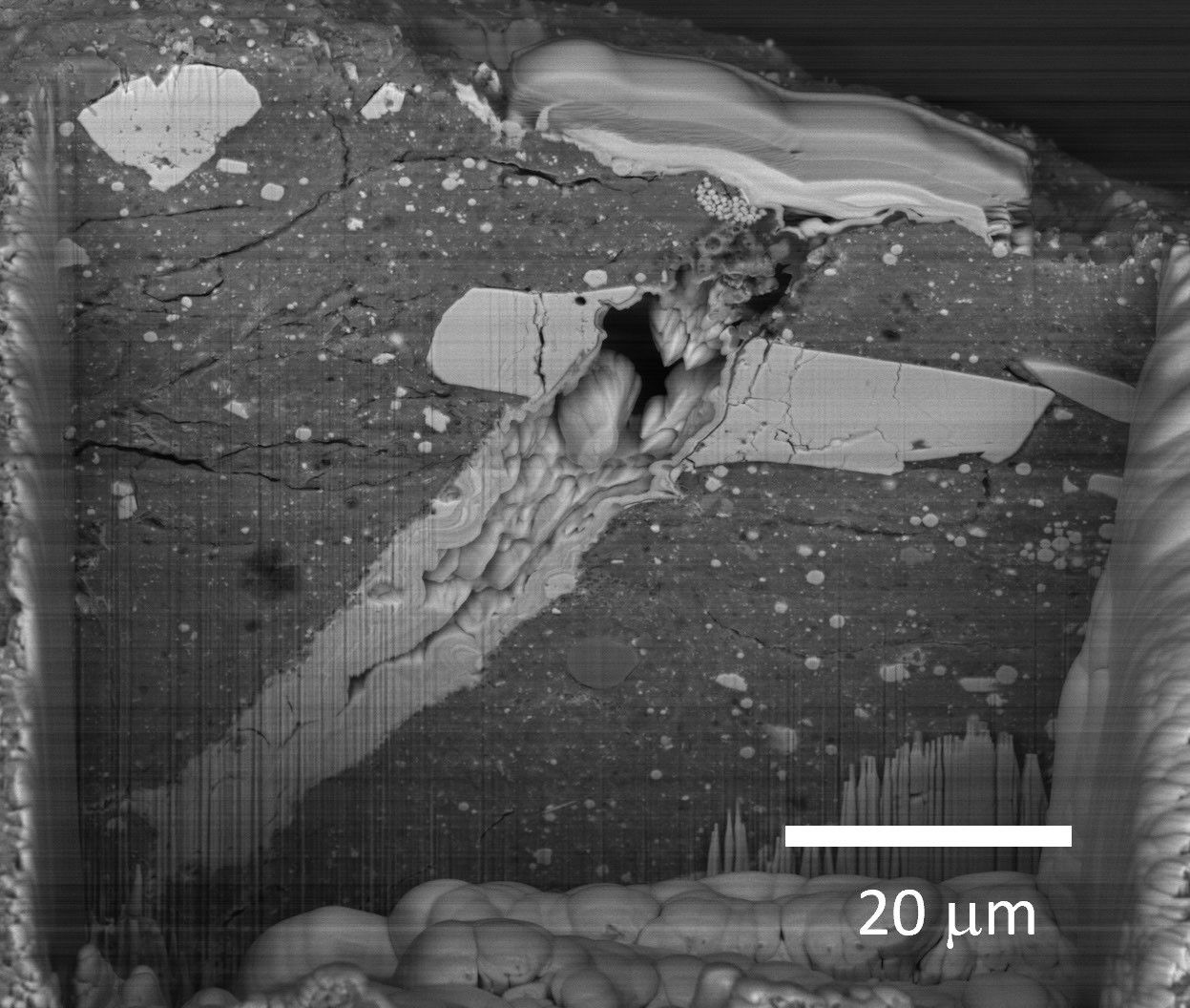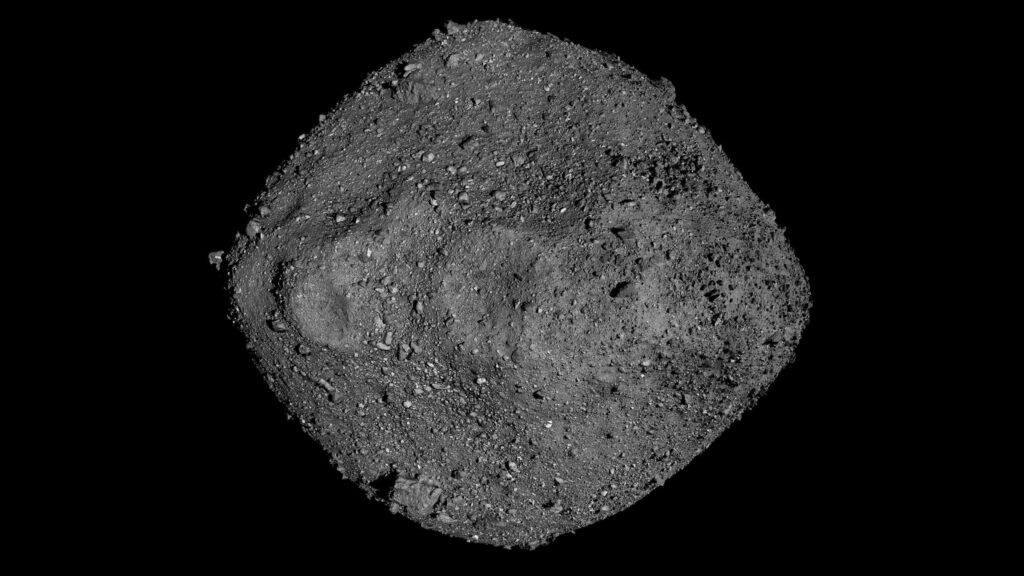The near-Earth asteroid Bennu contains stardust that is older than our solar system, as well as organic materials and ices from interstellar space, three fresh studies of the asteroid’s sample materials show.
Scientists all over the world have been poring over samples of Bennu ever since material from the asteroid was brought to Earth in 2023, courtesy of NASA’s OSIRIS-REx mission, which flew alongside the asteroid before briefly landing on it and scooping up samples in 2020.
The findings provide a glimpse at the conditions in the cosmos before our solar system arose 4.6 billion years ago and reveal more about the parent body that generated the 1,600-foot-wide (nearly 500 meters) asteroid.
A violent past
The first of the three papers, published Aug. 22 in the journal Nature Astronomy, suggests Bennu’s ancestor broke apart in a violent collision, after a complicated history. That older body contained materials from a number of distinct environments: close to the sun, far from the sun but still within our solar system, and beyond our solar system in interstellar space.
Scientists spotted these locations by looking at isotopes, or element types, in the sample of Bennu’s dust. Isotopes that originated in the solar system had a different makeup than those that came from interstellar stardust, for example.
“All of these constituents were transported great distances to the region that Bennu’s parent asteroid formed,” Ann Nguyen, co-lead author of the paper and a planetary scientist at NASA’s Johnson Space Center in Houston, said in a NASA statement.
Related: James Webb telescope reveals that asteroids Bennu and Ryugu may be parts of the same gigantic space rock
Scientists suggest the parent asteroid formed in the outer solar system, likely beyond Jupiter and Saturn. But then came a cataclysmic event: “We think this parent body was struck by an incoming asteroid and smashed apart,” co-lead author Jessica Barnes, an associate professor at the University of Arizona’s Lunar and Planetary Laboratory, said in a statement from the University of Arizona.
After the initial impact, “the fragments re-assembled, and this might have repeated several times,” Barnes added. Eventually, some of the surviving materials coalesced into Bennu.

Bennu vs. Ryugu
The second paper, published Aug. 22 in the journal Nature Geoscience, compared Bennu with primitive meteorites, as well as with asteroid Ryugu, from which samples were collected by the Japan Aerospace Exploration Agency’s Hayabusa2 mission.
The parent asteroids for Ryugu, Bennu and the meteorites likely arose in a “similar, distant region of the early solar system,” NASA officials wrote in the statement from the space agency. But Bennu differs from the other sampled bodies in some ways, suggesting that “this region changed over time, or did not mix as well as some scientists have thought,” they said.
Specifically, Bennu’s materials from the parent asteroid changed dramatically as they came into contact with water, the second study showed.
“Bennu’s parent asteroid accumulated ice and dust,” Tom Zega, co-leader of the second paper and a professor of planetary sciences at the University of Arizona, said in the NASA statement. “Eventually that ice melted, and the resulting liquid reacted with the dust to form what we see today: a sample that is 80% minerals that contain water.”
“We think the parent asteroid accumulated a lot of icy material from the outer solar system,” Zega added, “and then all it needed was a little bit of heat to melt the ice and cause liquids to react with solids.”
Micrometeorites
The third paper, published Aug. 22 in the journal Nature Geoscience, traced ample evidence of micrometeorites striking Bennu. These tiny rocks left behind microscopic craters and “impact melts” — bits of rock that used to be molten — on the surfaces of the sample. Researchers also saw traces of the solar wind — the constant stream of particles coming from the sun — represented in the samples.
“The surface weathering at Bennu is happening a lot faster than conventional wisdom would have it, and the impact melt mechanism appears to dominate, contrary to what we originally thought,” said co-author Lindsay Keller, a planetary scientist at NASA’s Johnson Space Center.
Additionally, while Bennu itself does not host life, the study could help scientists learn how life arose on our planet, said Michelle Thompson, second lead author of the paper and an associate professor at Purdue University who specializes in space weathering.
“Asteroids are relics of the early solar system. They’re like time capsules,” Thompson said in a statement from Purdue. “We can use them to examine the origin of our solar system, and to open a window to the origin of life on Earth.”
